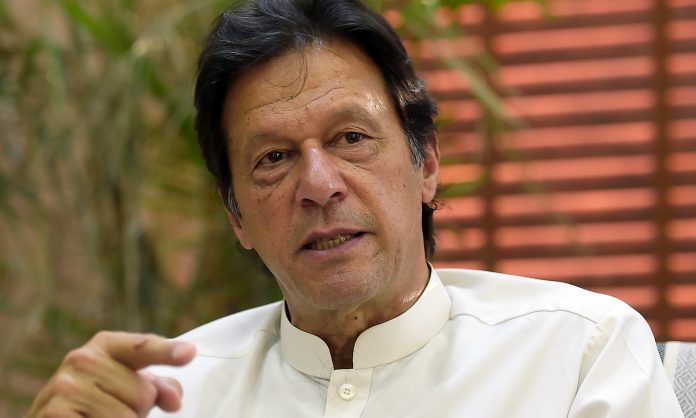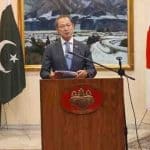ISLAMABAD, From breaking boundaries in the field of cricket to assuming premiership, Imran Khan has a formula to success – Original thinking, free from the subjugation of mental complexes.
A leaf from his golden cricketing era pictures Khan as a youngster from a humble Pakistani team, who was never ‘overwhelmed’ by the splendor of western cricketers, but instead relied on giving his best in the field.
Imran Khan on several occasions recalls that starting his first-class cricket at the age of 16, he never agreed to the prevailing notion among his mates that ‘western teams could not be beaten’. Instead, he says, that he always encouraged the ‘boys’ to come out of such complexes and believe in themselves.
The spirit of self-reliance and belief in oneself then drove Khan, the skipper of Pakistan cricket in 1992, to win the World Cup with a team dubbed as average by the critics of the time.
In politics as well, Imran Khan pursues the same strength of mind and will.
To the nation facing the challenges of social disparity, he, as a prime minister advises them to let their minds free from the mental slavery of other cultures.
“Subjugated minds can never achieve something big. Only innovative and original thinking can win you laurels,” he said recently at the launch of the uniform national curriculum, the first-ever in the country’s history.
The national curriculum is the fulfillment of the dream of Imran Khan, whose party manifesto for over two decades is focusing on transforming the nation into a “unified entity, rooted in common morals and ethos”.
Imran Khan is not in favour of promoting an education system where the result is creation of a wide gulf among different social classes with the ills of intellectual inferiority or superiority complexes.
English, he regrets, has not remained limited to a language to learn knowledge, but became a status symbol.
“Breaking the shackles of minds is more difficult and we are determined to bring the nation out of such complexes,” he said, stressing that no nation could rise until it relies on its original values and morals.
“Unfortunately, the way our system developed, we just don’t learn English as a language for higher education, but we adopt the entire culture instead, which is most alarming,” he said.
Khan believes that adopting the culture of others could lead to mental slavery – a big impediment in way to original thinking and innovation.
“When you adopt someone’s culture, you believe it to be superior and you end up becoming a slave to it. It creates a system of mental salves that is worse than the physical slavery,” he said.
He stresses that “copying someone ends up being a duplicate and a good slave, who is only good for adopting and replicating traditions and can never achieve more”.
Imran Khan, at the same occasion of the launch of national curriculum, referred to the fall of government in Afghanistan, to which he emphasized that ending merely the ‘physical slavery’ was not enough, but ‘coming out of mental slavery’ was rather more important.
“The chains of slavery have been broken in Afghanistan just recently. But, breaking the shackles of mental slavery is the hardest nut to crack,” he said, in view of the importance of access of the Afghan nation to education and their mental exposure to the world.
One of the main causes of the region’s problems is the lack of access to affordable education. Without education, it is almost impossible for a nation to advance itself, never mind the entire region.
Legendary African leader Nelson Mandela had once said that ‘Education is the most powerful weapon you can use to change the world.’
The recent statement of Imran Khan on ‘breaking the shackles of mental slavery’ is a guideline for the under-developed countries in the region, to pursue the agenda of development by believing in themselves.
The key to the region’s shackles surely is education, but in Imran Khan’s words, the mission is about being the carriers of that key to unlock and break the mental shackles once and for all.
Follow the PNI Facebook page for the latest news and updates.









